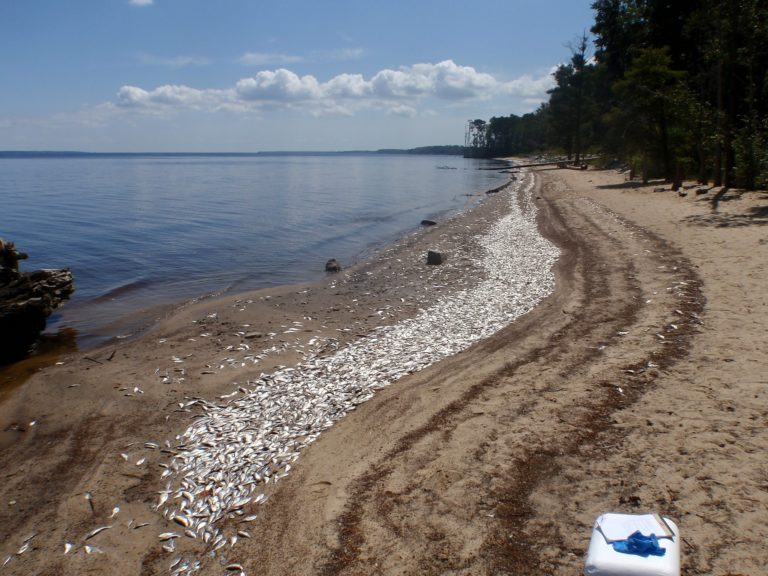Study Shows That Pollution from Hog and Poultry Operations is in North Carolina’s Waterways
By: Waterkeeper Alliance

Cooperative Study by DENR and USGS Found Significant Water Quality Impacts
Raleigh, North Carolina – March 19, 2015 – Dr. Stephen Harden with the United States Geological Survey (USGS) presented results of a new study initiated by the North Carolina Department of Environment and Natural Resources (DENR) Division of Water Resources and conducted in cooperation with USGS at the North Carolina State University Water Resources Research Institute Annual Conference today. The results show yet again that industrial swine and poultry operations are polluting our waterways.
The study examined water quality in watersheds without any swine or poultry operations compared against those with swine but no poultry and those with both swine and poultry. Dr. Harden reported that there were significant differences in water quality between background areas and areas dominated by hog and poultry operations. Today’s presentation will be available online, and the full report will be released in the coming months.
“As if the existing evidence of pollution from these operations was not sufficient, now DENR’s own commissioned study further shows significant water pollution from industrial animal operations,” said Gray Jernigan, Raleigh-based Staff Attorney with Waterkeeper Alliance. “It’s time for state officials to step-up and enforce the law to prevent illegal discharges of pollution into our waterways.”
“It is clear from the presentation today that industrial animal operations are negatively impacting our waters,” said Heather Deck, Pamlico-Tar Riverkeeper. “It is past time for the industry to abandon the lagoon and sprayfield system and shift to superior waste management technologies.”
This comes on the heels of a January study published by researchers at the University of North Carolina and Johns Hopkins linked high levels of fecal bacteria in waterways to industrial hog operations. Researchers confirmed the source of the bacteria by testing for markers of bacteria that only come from pigs. In an interview with Environmental Health News, a spokesperson for DENR was dismissive of the study calling the results “inconclusive.”
Contacts:
Tina Posterli | Waterkeeper Alliance | [email protected] | 516-526-9371
Heather Deck | Pamlico-Tar River Foundation | [email protected] | 252.402.5644
Gray Jernigan | Waterkeeper Alliance | [email protected] | 919.839.6011
###
About WATERKEEPER® Alliance Waterkeeper Alliance is a global movement uniting more than 240 Waterkeeper organizations around the world and focusing citizen advocacy in issues that affect our waterways, from pollution to climate change. Waterkeepers patrol and protect more than 2 million square miles of rivers, streams and coastlines in the Americas, Europe, Australia, Asia and Africa. For more information please visit: www.waterkeeper.org
About Pamlico-Tar River Foundation PTRF is a non-profit organization whose mission is to monitor, protect, and enhance the Tar-Pamlico River and watershed while promoting environmental justice. For more information please visit:www.ptrf.org